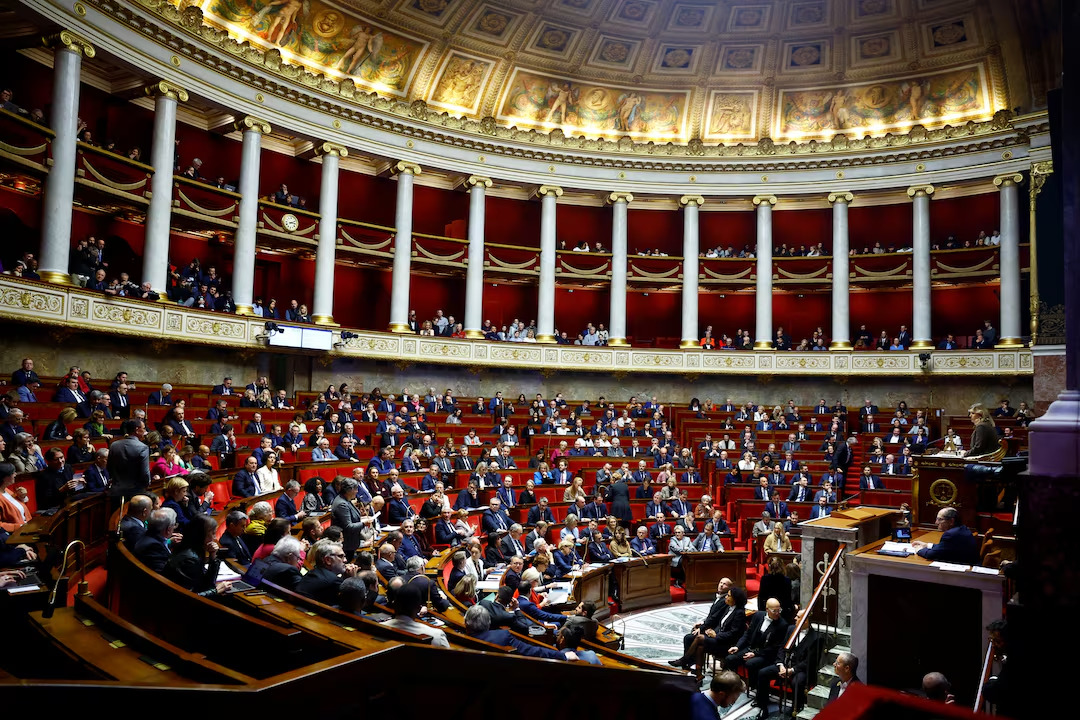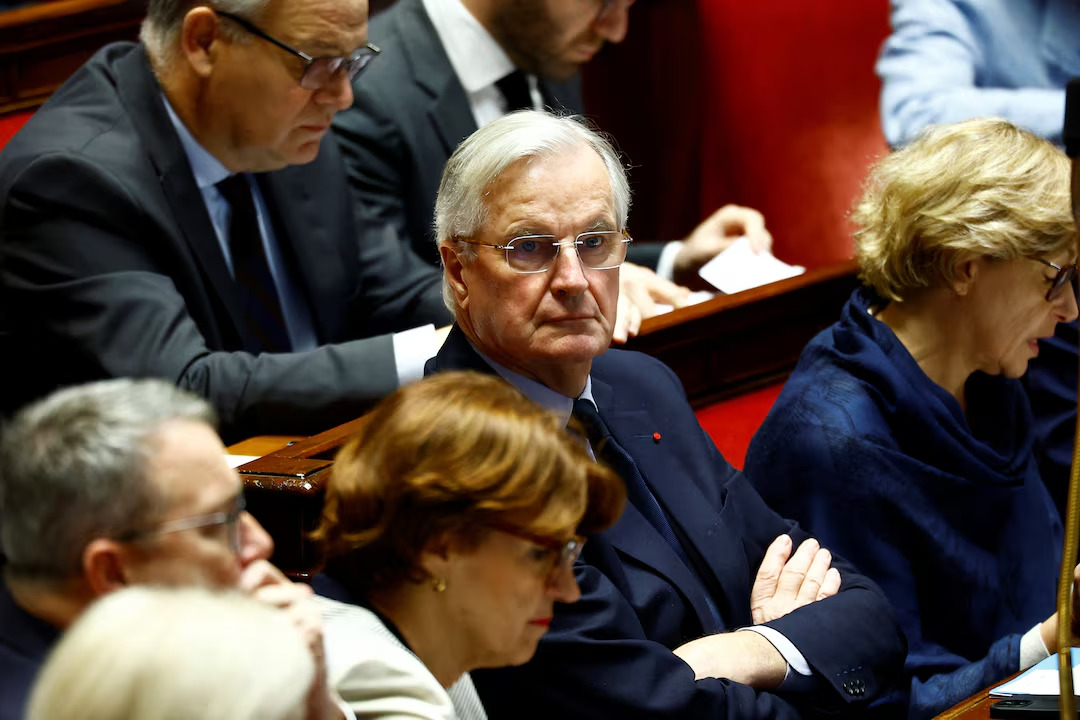(CLO) On December 4, French lawmakers will conduct a vote of no confidence, an event that could potentially oust the government of newly inaugurated Prime Minister Michel Barnier.
Barring a last-minute surprise, Prime Minister Barnier's government will become the first French government to be forced to resign after a vote of no confidence in more than 60 years, at a time when the country is struggling with a large budget deficit.
The debate will begin at 16:00 (22:00 on December 4 Vietnam time), and the vote is expected to take place after about three hours, according to information from parliamentary officials. President Emmanuel Macron will return to France after a state visit to Saudi Arabia during the day.

Government session at the National Assembly in Paris, France, December 3. Photo: Reuters
The collapse of Chancellor Barnier's government would create a power vacuum at the heart of Europe, as Germany is also in the midst of an election, weeks before US President-elect Donald Trump begins his second term.
In a television interview on the evening of December 3, Mr. Barnier said he remained open to the possibility of budget negotiations with the far-right National Rally (RN) of Ms. Marine Le Pen and other parties, and expressed hope that his government could survive the no-confidence vote.
"This depends on the deputies, each of whom has a responsibility to the French people, to their voters and to the country, which is in a rather serious moment," he said, warning of political tensions in the country.
However, he rejected suggestions from some members of his centre-right party that Mr Macron should resign to resolve the crisis, stressing that the president was "one of the guarantors of the stability of our country".
Meanwhile, when asked about growing speculation that he might not complete his term, Mr Macron insisted: "I will honour this trust with all my energy until the last moment." His term runs until mid-2027 and he cannot be forced to resign by parliament.
Budget Minister Laurent Saint-Martin said the removal of the government and its budget plan could lead to a larger fiscal deficit and increased instability. The risk premium investors demand to hold French government bonds over German bonds hit a near 12-year high on Dec. 3.

French Prime Minister Michel Barnier attends a government question-and-answer session at the National Assembly in Paris, France, December 3. Photo: Reuters
The political crisis escalated when Mr Barnier said he would try to pass the social security part of the budget without a vote after failing to get support from the RN party. Both sides blamed each other for the failure to pass the budget.
"For us, budget censorship is the only option allowed by the constitution to protect the French people," Marine Le Pen told reporters at the National Assembly.
Both the far left and the far right now have enough votes to topple Mr Barnier’s government, and Ms Le Pen has confirmed that her party will support the left-wing coalition’s motion of no confidence. However, RN’s own motion of no confidence will not have enough votes to pass.
Mr Barnier’s budget is aimed at cutting the fiscal deficit, which is expected to exceed 6% of GDP this year, with tax increases and spending cuts worth €60bn. The goal is to reduce the deficit to 5% next year, a metric closely watched by credit rating agencies.
If the no-confidence vote is successful, President Macron could ask Mr Barnier to continue as caretaker prime minister while a replacement is sought, a process that could take until next year.
If the budget is not passed by December 20, the government could adopt emergency measures to extend spending limits and tax provisions from this year, but that would mean Mr Barnier’s austerity measures would be ignored.
Ngoc Anh (according to Reuters)
Source: https://www.congluan.vn/chinh-phu-moi-cua-phap-sap-doi-mat-voi-nguy-co-bi-phe-truat-post324105.html



![[Photo] General Secretary To Lam attends the 80th Anniversary of the Cultural Sector's Traditional Day](https://vstatic.vietnam.vn/vietnam/resource/IMAGE/2025/8/23/7a88e6b58502490aa153adf8f0eec2b2)
![[Photo] Prime Minister Pham Minh Chinh chairs the meeting of the Government Party Committee Standing Committee](https://vstatic.vietnam.vn/vietnam/resource/IMAGE/2025/8/23/8e94aa3d26424d1ab1528c3e4bbacc45)


































































































Comment (0)